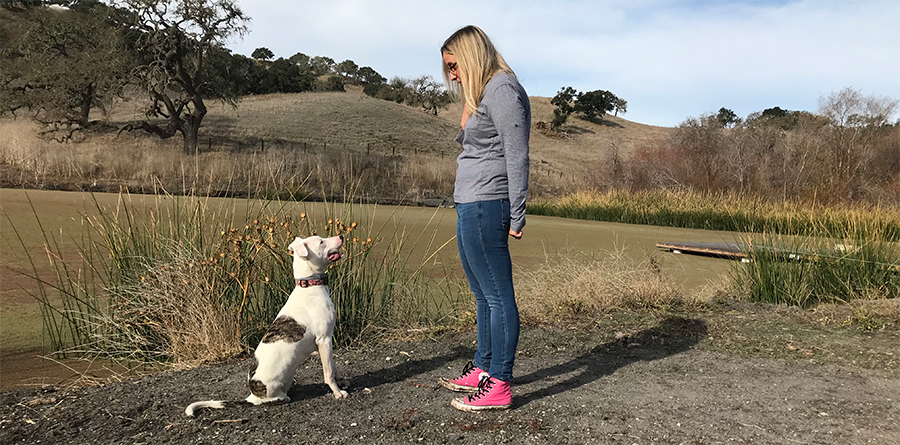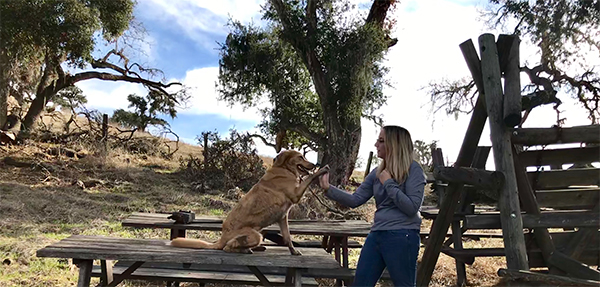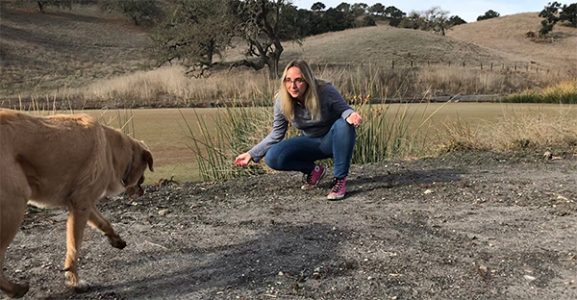How to Choose a Professional Dog Trainer You’re Comfortable With

The start of a new year can mean a fresh slate and a chance to improve the relationship you have with your dog. One great way to do this is by signing your dog up for professional training. If you’ve ever sought professional training for your dog in the past, you may have experienced conflicting perspectives between trainers. It can be overwhelming. Most importantly, know that not all training methods work for all dogs, so it’s important to find a training program that both you and your dog are comfortable with. What works for your friend and their dog might not be the right program for your situation.
With that being said, there are some things that every pet parent should research when choosing a dog trainer. Follow these tips to prioritize your dog’s safety and set you up for the best chance of success with dog training:
Listen to Your Gut
It’s often best to find a trainer who uses positive reinforcement and emphasizes communication between you and your dog, nurturing ways in which you and your dog can read one another better.
Since dog training is an unregulated industry, when searching for a trainer, it is important to keep in mind that you are your dog’s advocate. If anything makes you uncomfortable, speak up, say no, or step out. It’s okay to walk out of a class for any reason, if an instructor is asking you to do something you are not comfortable with, wants you to use potentially harmful equipment or is degrading to you or your dog.
As the Behavior Consultant at Great Dog Rescue New England, I often get asked how to find a good trainer─ one who uses the most up-to-date methods. This can be tricky; it is up to us to do our due diligence in selecting who we work with, and how we want to treat our dogs. No one ever goes into training with hurting their dogs as a goal, but putting our trust in the wrong people can inadvertently do so. You can turn to friends, family and your veterinarian for a referral, but you’ll still need to do your own research.

Practicing “paw” command.
Do Your Research
So, what should you be looking for?
Certifications:
- CPDT-KA (Certified Professional Dog Trainer – Knowledge Assessed)
- CPDT-KSA (Certified Professional Dog Trainer-Knowledge & Skills Assessed)
- CBCC-KA (Certified Behavior Consultant Canine-Knowledge Assessed)
- KPA (Karen Pryor Academy Dog Trainer Professional Program)
Terminology
- Positive Reinforcement
- Relationship Based
- Clicker Training/Reward Marker
Organizations they belong to:
- Pet Professional Guild- The Pet Professional Guild is a membership organization representing pet industry professionals who are committed to results based, science based force-free training and pet care
- IAABC- International Association of Animal Behavior Consultants
Equipment:
You’ll find that some trainers only use flat or martingale collars and harnesses, while others may incorporate electronic collars or prong collars into their programs. You need to decide which equipment you’re comfortable with and which equipment you’d rather not use. Equipment alone will not bring dog training success. The key is to develop a positive relationship with your dog through training, and the equipment just supplements this relationship, serving as a tool to communicate more clearly with your dog. Without improving the bond you have with your dog, equipment is not so useful.
Detail:
- Do they require you fill out an application/behavior questionnaire?
- Do they have a liability form/insurance?
- Do they offer a written behavior plan after one-on-one lessons?
- Will they share contact information of prior clients they’ve worked with so you can get a referral?

Working on the “come” command.
Tips for Finding Potential Trainers
- Many local Shelters and Rescues have excellent, modern, relationship-based training classes.
- Your local branch of the SPCA is a good place to start when searching for a trainer.
- Ask your veterinarian
- Ask your family, friends and neighbors for recommendations
If you are looking for specific behavioral training for a problem behavior, the same rules as above apply, but you may also want to get a referral for a Veterinary Behaviorist. These are veterinarians who specialize in behavior. They can write out a behavior plan for you, prescribe medication if needed and set you up with a local trainer to help you follow through. Many trainers may also be able to help you with behavior problems and modification, but again, make sure they are experienced enough to be doing so, and handle the dogs and the behavior in a way you are comfortable with, and that won’t potentially harm your dog or make the problem worse.
We all love and want to help our dogs, while being able to live with them in a way that fits our lifestyle. Our dogs are always there for us, they love us unconditionally, and we owe it to them to slow down, breathe, educate ourselves and make sure we are doing the best for them we can.
Steph Du Preez is an Adoptions, Behavior, Returns and Local Intake Volunteer at GDRNE as well as, BS, CPDT-KA of Great Dog Rescue NE and Ohh, Sit! Pet Services.





